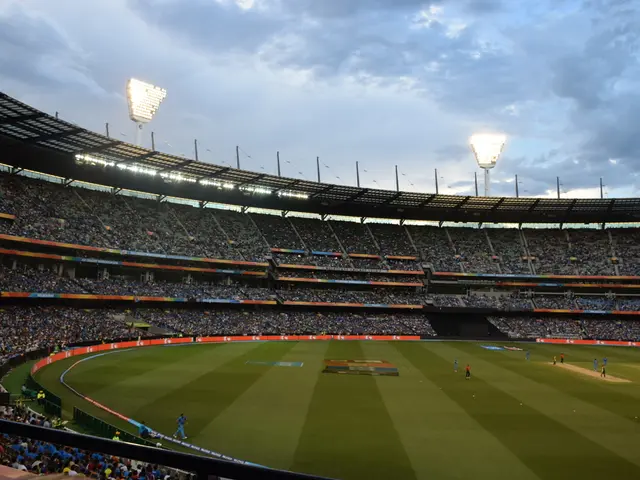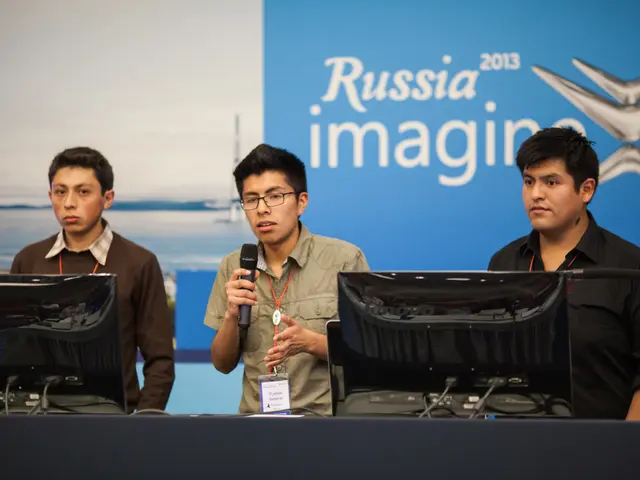Systemic problems in Ottawa's policing residence persistent challenges, critics argue
The Ottawa Police Service proudly unveiled its new class of recruits, boasting a diverse, multicultural group speaking a total of 14 languages. Among the languages are Tamil, Sinhalese, Hindi, Marathi, and Kurdish—all in an effort to better serve Ottawa’s growing, diverse population, as per the February 27 news release.
However, not everyone is optimistic about these changes. Robin Browne, founder of 613-819 Black Hub, is skeptical: "The Ottawa police and their supporters will say that this is going to change things…but it’s not working.”
Browne points to the increasing racial disparities in traffic stops over the last decade, as reported in research released by Ottawa police in 2024. Young male drivers aged 16-24 have faced the highest levels of disproportionality, with drivers perceived to be Middle Eastern and Black being stopped more than what would be expected based on corresponding city population data. Despite the significant reductions seen since 2013, this issue still persists.
Similarly, the OPS disproportionately used force against Black and Middle Eastern people in 2020, according to a report from the Ottawa Police Service Board. In Use of Force incidents, individuals perceived to be Black were involved 4.8 times more than expected, while those perceived as Middle Eastern were involved 2.4 times more than expected.
The Ottawa Police Service is aware of the concerns raised by advocates, stating: "The linguistic and cultural diversity of this latest class is reflective of the makeup of the City of Ottawa. … As the City is increasingly diversifying, the Ottawa Police Service is striving to meet the representation within the Service." They are working with the Community Equity Council to attract representation from all communities, believing that representation is the first step in changing police culture.
Yet, Browne remains unconvinced: "What happens is that all these diverse officers don’t change the police force—the police force changes them."
Addressing racial disparities in traffic stops and use of force by the Ottawa Police Service may require more than just diversifying the workforce. Aside from community-led initiatives and alternative responses to police encounters, emphasis should be placed on data-driven policy and transparency, training and education, community engagement and accountability, reform of bias in policing algorithms and technologies, and addressing systemic racism through policy and organizational change.
[1] https://rightsanddemocracies.org/en/do-community-police-programs-reduce-crime-contribute-to-greater-trust-in-police-or-more-effective-policing/[2] https://www.aclu.org/issues/stop-racial-profiling[3] https://www.ncbi.nlm.nih.gov/pmc/articles/PMC3443372/[4] https://www.thebasicrights.org/issues/policing-and-law-enforcement/use-of-force-inflation[5] https://www.theatlantic.com/magazine/archive/2020/06/defunding-the-police-is-an-idea-whose-time-has-come/612634/
- The newly recruited officers at the Ottawa Police Service represent 14 different languages, including Tamil, Sinhalese, Hindi, Marathi, and Kurdish.
- Robin Browne, founder of 613-819 Black Hub, questions the impact of these changes in the police force.
- Browne highlights the increase in racial disparities in traffic stops over the last decade, as reported in research by the Ottawa police in 2024.
- Young male drivers aged 16-24 have faced the highest levels of disproportionality, with drivers perceived to be Middle Eastern and Black being stopped more than what would be expected based on corresponding city population data.
- Despite significant reductions seen since 2013, the issue of disproportionate traffic stops still persists.
- In 2020, the Ottawa Police Service disproportionately used force against Black and Middle Eastern people, according to a report from the Ottawa Police Service Board.
- Individuals perceived to be Black were involved 4.8 times more than expected in Use of Force incidents, while those perceived as Middle Eastern were involved 2.4 times more than expected.
- The Ottawa Police Service acknowledges the concerns raised by advocates, emphasizing the reflection of the city's diversity in their recruits.
- They are collaborating with the Community Equity Council to attract representation from all communities, believing that representation is the first step in changing police culture.
- Browne remains skeptical, stating that diversifying the force does not necessarily change the police culture.
- Addressing racial disparities in traffic stops and use of force may require more than just diversifying the workforce.
- Community-led initiatives, alternative responses to police encounters, data-driven policy, transparency, training and education, community engagement, and accountability should all be emphasized.
- Reform of bias in policing algorithms and technologies, and addressing systemic racism through policy and organizational change are also crucial.
- For further insight, resources like the Rights and Democracies organization, the ACLU, and various academic research can be found online.
- The Atlantic magazine published an article in 2020 discussing the defunding of the police and its relevance.
- The basic rights organization dedicates a section of their website to policing and law enforcement issues, including the use of force.
- To succeed in this endeavor, emphasis should be placed on policy, education, self-development, career development, and skills training.
- Personal growth, social media, and entertainment can play a role in fostering understanding and empathy within diverse communities.
- Policy-and-legislation, politics, job-search, and general-news sources can provide a broader perspective on the situation.
- Crime-and-justice is another crucial aspect that requires close attention and action.
- Sports, including football, WNBA, hockey, golf, sports-betting, European leagues, basketball, NCAA basketball, NHL, racing, premier league, NBA, Masters, Grand Prix, horse-racing, and mixed-martial-arts, can serve as a means of relaxation and positive engagement among diverse communities.
- Weather and weather-forecasting information can also play a role in fostering connection and understanding within diverse communities. Sports-analysis and auto-racing may provide additional perspectives in this regard.







